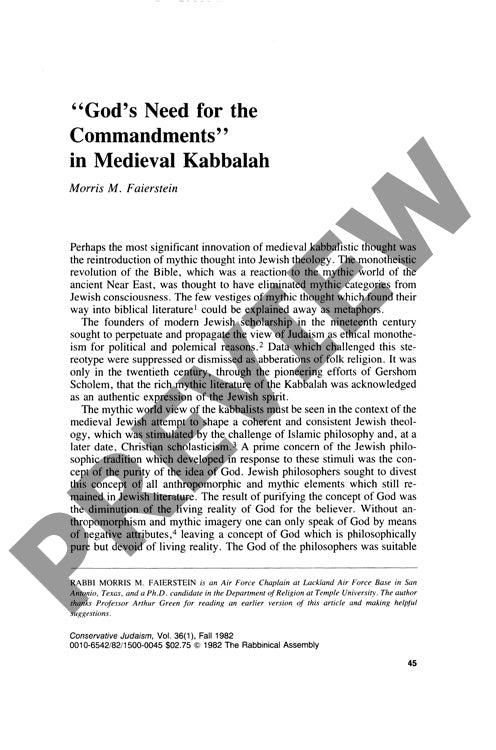Gods Need for the Commandments in Mediev
Couldn't load pickup availability
Medieval kabbalists revolutionized Jewish theology by proposing a radical concept: God needs human religious observance. This notion of "divine need" (zorekh gavoha) emerged as a direct challenge to the sterile deity portrayed in medieval philosophy, reintroducing mythic elements into Jewish thought through explanations of commandment observance (ta'amei hamizvot). Through analysis of primary kabbalistic texts from the Sefer ha-Bahir through the Zohar and later works by Menachem Recanati and Meir ibn Gabbai, two central motifs emerge: adam kadmon (primordial man/microcosm-macrocosm) and yihud (unification). These frameworks established that human performance of commandments directly affects the divine realm of the sefirot. While the Gerona school emphasized both cosmic and personal mystical dimensions of this concept, the Zohar and subsequent literature focused primarily on cosmic effects, positioning mitzvot observance as crucial for maintaining unity in the sefirotic world and ensuring divine sustenance flows to the lower world. This kabbalistic innovation marked a decisive break from both rabbinic and philosophical traditions by assigning cosmic significance to ritual observance, effectively bridging the gap between human and divine realms through a deliberate remythicization of Jewish theology.

More Information
-
Physical Description
-
Publication Information
Published 1982
ISBN
-
Publication Credits
Morris Faierstein

